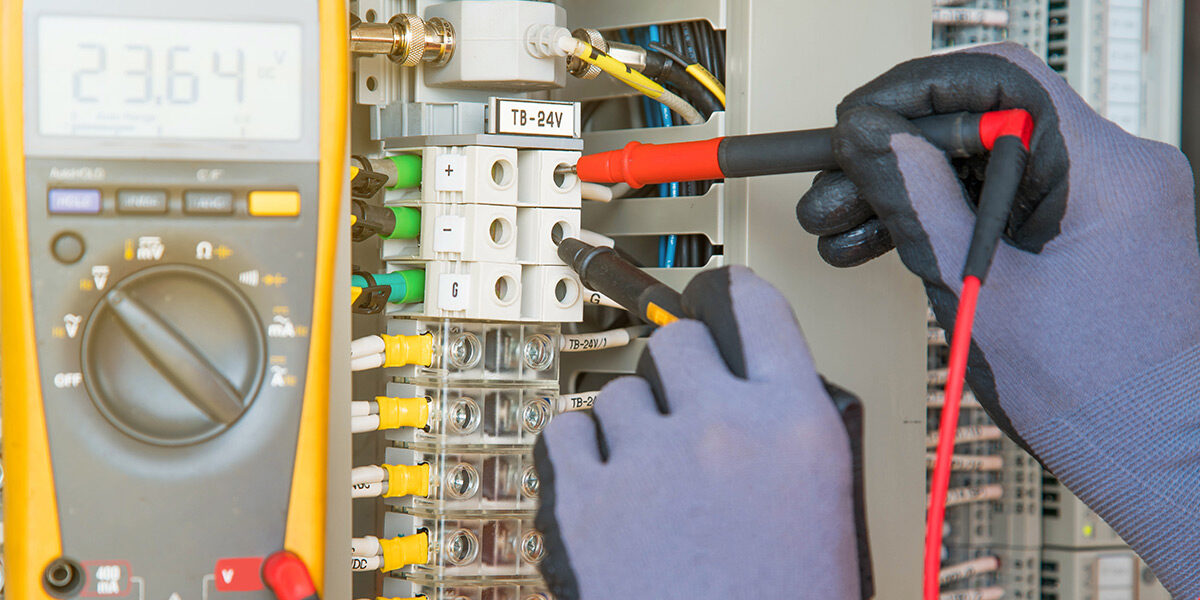
- Lessons: 61
- Duration: 9 weeks
Program Overview
Download our Instrumentation and Control Diploma brochure
The Instrumentation and Controls Postgraduate Diploma Program builds a solid understanding of the best engineering practices in instrumentation, controls and networking technology. Instruments and process control systems are used in the industry to measure and control variables such as pressure, flow, temperature, level, motion, force and chemical composition.
Participants will understand the requirements of applicable Canadian technical standards, norms and practices. They will acquire knowledge and skills in designing, configuring, tuning, operating and maintaining instrumentation and controls systems in a variety of industrial settings.
All courses in the program are taught by practicing industrial professionals, ensuring that the learning process is practical and comprehensive.
The program consists of 176 hrs of instruction and includes in-depth classroom lectures, demonstrations and case studies. The program also includes site visits to develop a practical understanding of real-life scenarios, problems and solutions.
Career Opportunities
Graduates are well suited for positions in a variety of industries such as chemical, petroleum refining, food-processing, automotive manufacturing, steel production, pulp and paper sectors. They will be responsible for modern industrial equipment that requires advanced level of control and integrates electrical, mechanical and instrumentation technologies. Typical positions include: Instrument and Control System Designer, Control Systems Technologist, Instrument Technologist, Process Control Technologist etc.
Courses in this program:
Instrumentation
Controls
Networking and Communication Systems
Canadian Electrical Code
Engineering Project Management
Canadian Industrial Practices and Workplace Culture
Program Outcomes
Knowledge
Core Knowledge Competency:
Graduates will gain proficiency in the area of management, operation, troubleshooting and maintenance of instrumentation and control systems.
Upon completion of this program participants will:
Understand engineering standards and specifications relating to instrumentation and controls;
Understand requirements related to reliability of instrumentation and control systems;
Identify design specifications concerned with instrumentation, distributed controls, programmable logic controllers and ancillary systems;
Recognize sizing, wiring, configuration design and operational characteristics of control systems;
Understand requirements concerned with effective maintenance of instrumentation and control systems;
Skills
Core Skills Competency:
Graduates will be able to ensure operational integrity and productivity of instrumentation and control systems, provide design inputs and oversee set up, operation and maintenance of these systems.
Upon completion of this program participants will be able to:
Ensure consistent application of design standards, processes and guidelines related to operation and maintenance of instrumentation and control systems;
Support design, installation, operation, inspection, trouble-shooting and optimization of instrumentation and control systems;
Review engineering designs and make recommendations to enhance productivity, reliability, safety, and environmental performance of instrumentation and control systems;
Contribute to continuous improvement of company practices related to operation of systems;
Specify the scope and frequencies of maintenance activities and contribute to development of preventative maintenance programs;
Ensure that engineering changes are effectively integrated into existing systems;
Perform risk assessments of engineering changes and new technologies;
Exhibit personal and interpersonal professional behaviors, communicate effectively and contribute to team-work and project activities.
-
1. Instrumentation
-
Lesson 1.1Introduction to Instrumentation
-
Lesson 1.2Documentation
-
Lesson 1.3Flowsheet Symbols
-
Lesson 1.4Pressure Instrumentation
-
Lesson 1.5Level Instrumentation
-
Lesson 1.6Flow Instrumentation
-
Lesson 1.7Temperature instrumentation
-
Lesson 1.8Resistance temperature Detector
-
Lesson 1.9Current Alarms and Accessories
-
Lesson 1.10Control Values and Accessories
-
Lesson 1.11Team Project IV
-
Lesson 1.12Course Overview, Exam Preparation and Final Exam
-
-
2. Control System
-
Lesson 2.1Basic Control Principles
-
Lesson 2.2ON/OFF Control
-
Lesson 2.3Proportional Control
-
Lesson 2.4Reset and Integral Action
-
Lesson 2.5Rate or Derivation Action
-
Lesson 2.6Multiple Control Modes
-
Lesson 2.7Typical Control Schemes
-
Lesson 2.8Process Dynamics
-
Lesson 2.9Controller Tuning
-
Lesson 2.10Other Controller Systems
-
Lesson 2.11Team Project IV
-
Lesson 2.12Course Overview, Exam Preparation and Final Exam
-
-
3. Networking and Communication Systems
-
Lesson 3.1Basic Principles
-
Lesson 3.2Serial Communication Standards
-
Lesson 3.3Serial Communication Standards (Continued)
-
Lesson 3.4Error Detection
-
Lesson 3.5Open System Interconnection Model
-
Lesson 3.6Industrial Protocols
-
Lesson 3.7Open Industrial Fieldbus and Device Net Systems
-
Lesson 3.8Local Area Networks (LAN’s)
-
Lesson 3.9Interwork Connections
-
Lesson 3.10Host To Host Transport Layer
-
Lesson 3.11Process Automation: The Factory of The Future SCADA Systems
-
Lesson 3.12Course Overview, Exam Preparation and Final Exam
-
-
4. Canadian Electrical Code
-
Lesson 4.1Electrical Code Overview, Wire and Cable Applications
-
Lesson 4.2Grounding and Bonding
-
Lesson 4.3Protection and Control
-
Lesson 4.4Fire Systems and Pumps, Swimming Pools, Motor Applications
-
Lesson 4.5High Voltage Substations and Lines
-
Lesson 4.6Hazardous Locations, Emergency Systems
-
Lesson 4.7Course Overview, Exam Preparation and Final Exam
-
-
5. Engineering Project Management
-
Lesson 5.1Introduction, Project Life Cycle and Management Processes
-
Lesson 5.2Initiating a Project
-
Lesson 5.3Project Scope Planning
-
Lesson 5.4Project Scheduling and Budgeting
-
Lesson 5.5Planning Project Integration
-
Lesson 5.6Executing a Project
-
Lesson 5.7Monitoring and Controlling a Project
-
Lesson 5.8Closing a Project
-
Lesson 5.9Life Cycle (LCC) Analysis
-
Lesson 5.10Tendering Process
-
Lesson 5.11Contracting Process
-
Lesson 5.12Course Overview, Exam Preparation and Final Exam
-
-
6. Canadian Industrial Practices & Workplace Culture
